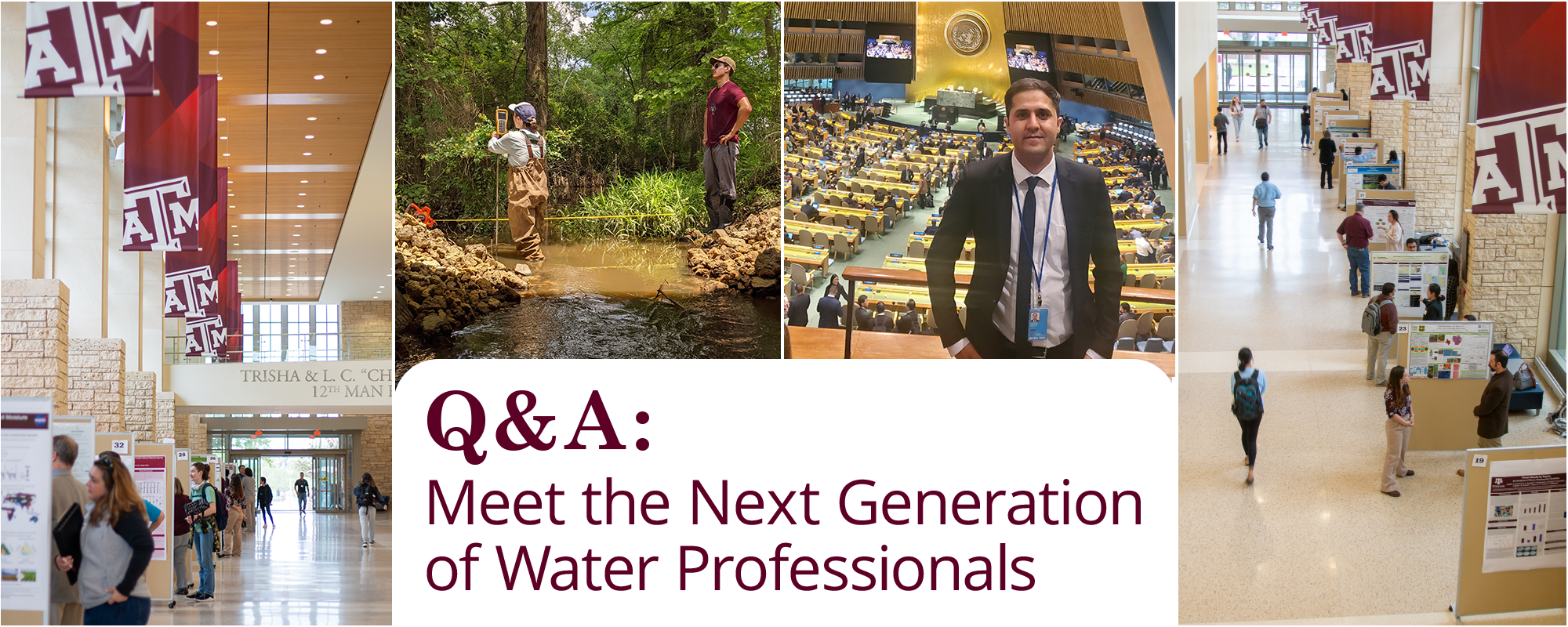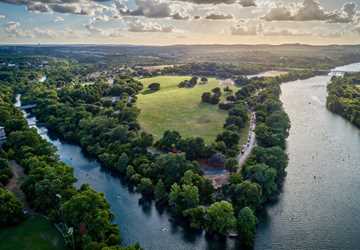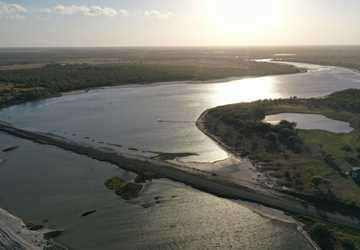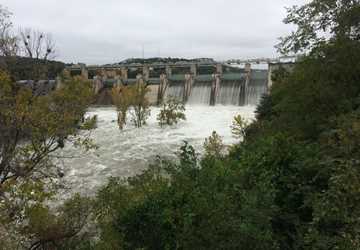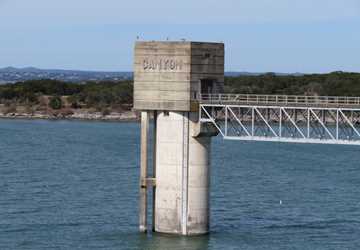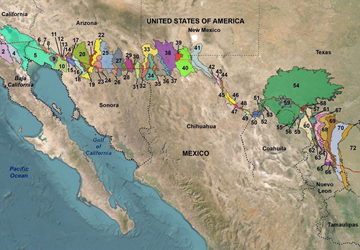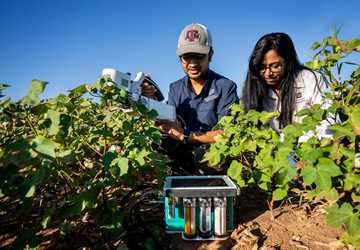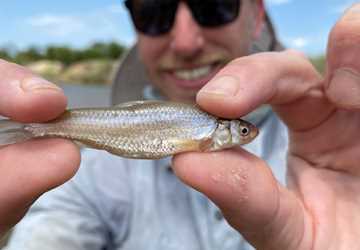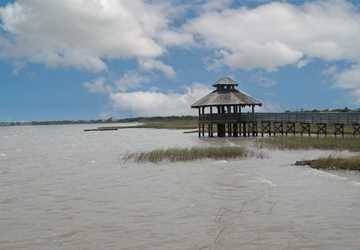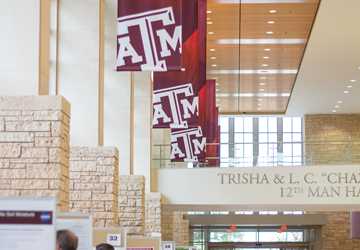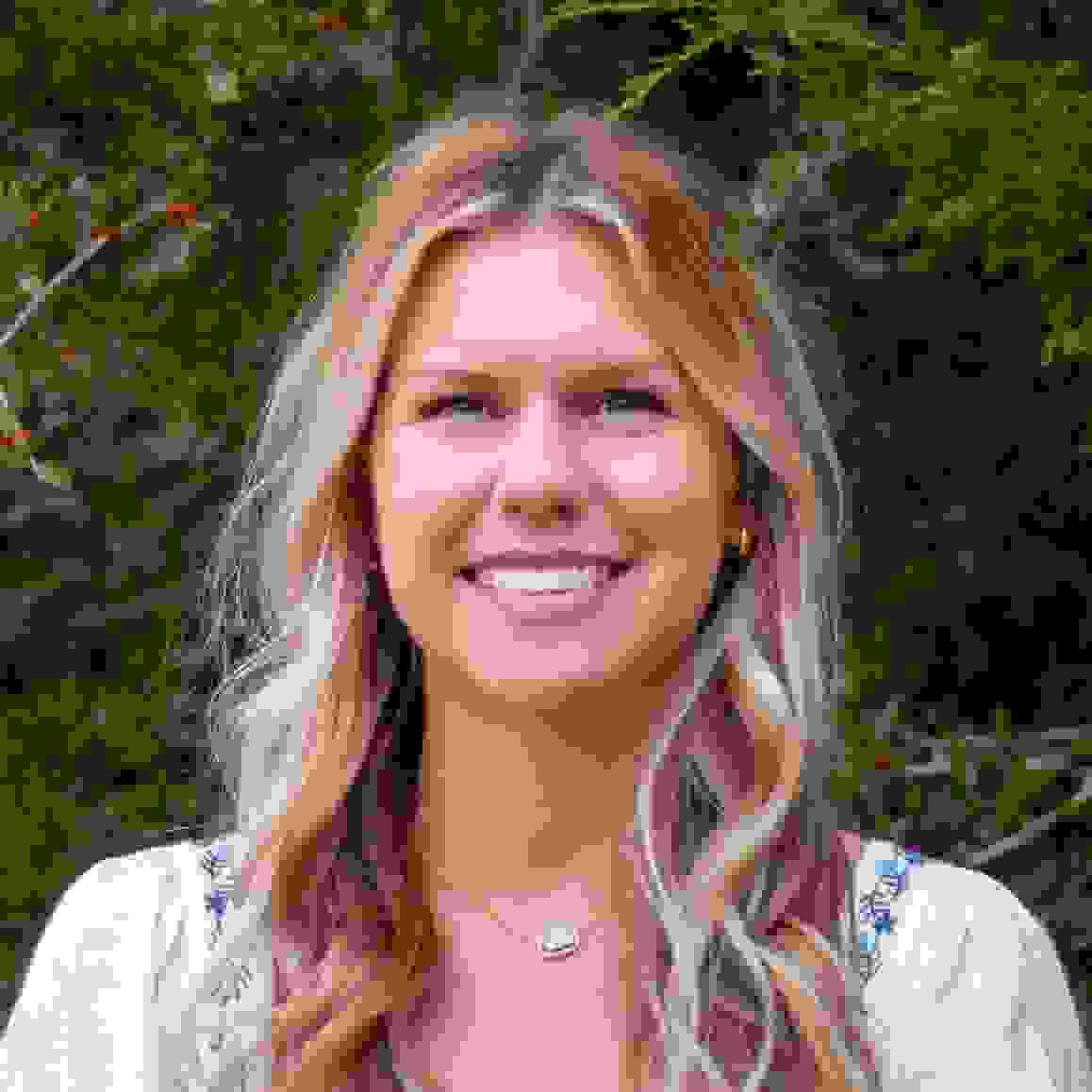From municipal water supply engineering to hydrological modeling and geospatial science, to efficient agricultural irrigation and urban green stormwater infrastructure — determined graduate students at universities across Texas are studying the major water issues facing the state.
The Texas Water Resources Institute, TWRI, showcased many of these students at the Water Daze 2023 poster contest and seminar March 29, at Texas A&M University. Research posters covering nearly every aspect of water resources in Texas filled the 12th Man Hall in the Memorial Student Center, bringing together Texas A&M faculty, students, researchers and experts, and fueling many future collaborations.
Water Daze participants and other graduate students studying water at universities around the state recently met with txH2O to talk mentorship, career goals and advice for students following in their footsteps.
Estimated reading time: 12 minutes
txH2O sat down with graduate students across the state to discuss research, goals and advice for students studying water
Want to get txH20 delivered right to your inbox? Click to subscribe.
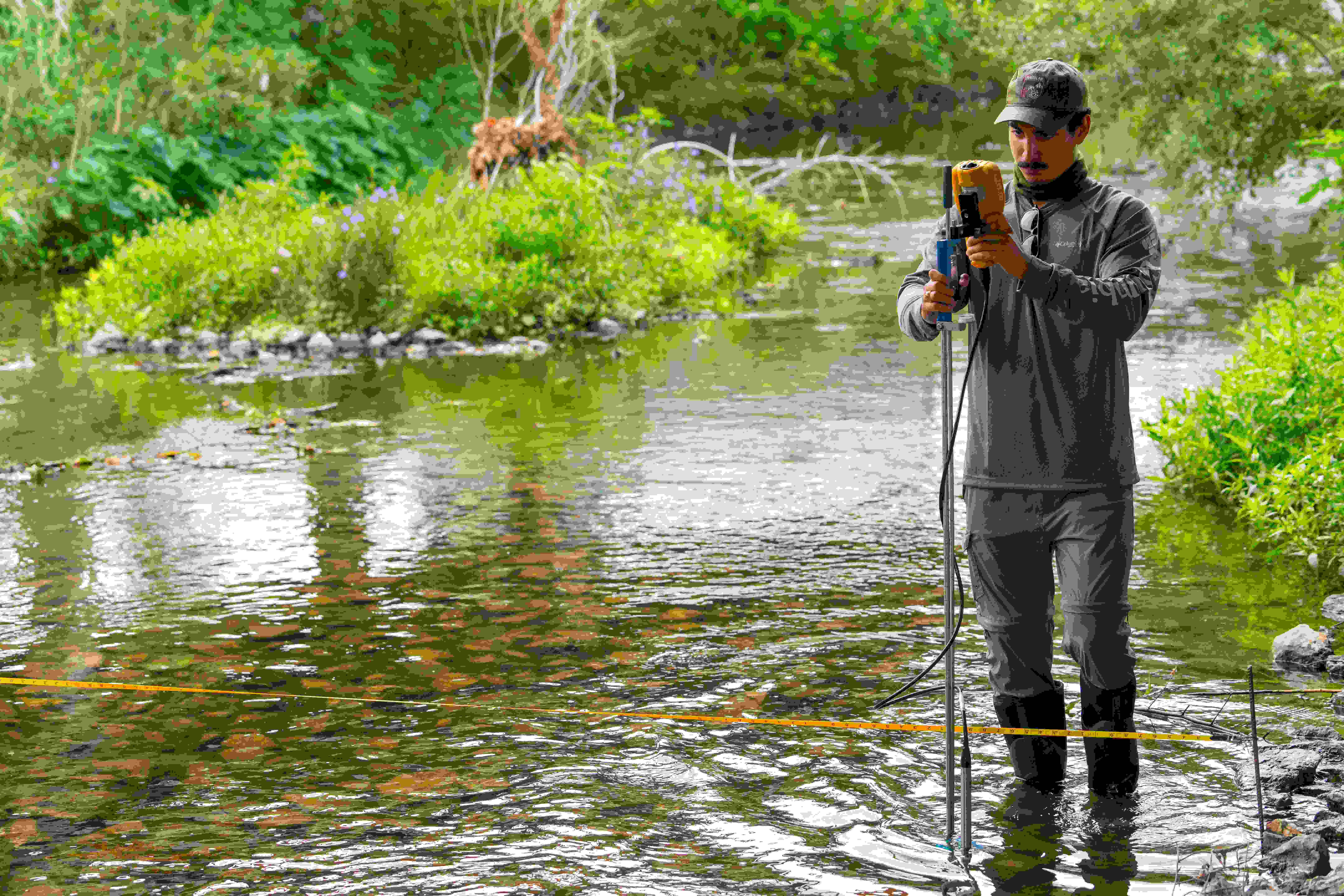
Norberto Barragan
Master’s student, Water Management and Hydrological Science program, College of Arts and Sciences, Texas A&M, and TWRI graduate research assistant
Q : What is your current research about?
A : For my thesis research, I am studying Arctic and non-Arctic rivers, comparing the morphologies and planforms of these rivers in relation to climate and environmental conditions. I’ll mainly be using remote sensing to extract satellite imagery data and global river centerlines datasets in ArcGIS and other applications.
Q : What accomplishments are you most proud of from your academic career so far?
A : My greatest accomplishment is becoming the first one in my family to graduate from any university and obtaining a degree in environmental geosciences from Texas A&M. Also, getting accepted into graduate school to pursue a master’s degree.
Q : Who is a mentor who has helped or inspired you?
A : My current graduate advisor Inci Güneralp, Ph.D., associate professor of geography at Texas A&M, has helped me through funding opportunities and helped me to apply for fellowships. The faculty and staff at TWRI have also led me and encouraged me to become successful by getting involved in research projects.
Q : What is your advice for younger students finding their path?
A : Don’t be afraid to ask questions or for help or guidance. It took me a couple of semesters in college to decide what I wanted to study. If it wasn’t for my undergraduate advisor mentioning a major in environmental geosciences, I would probably be studying something else that I do not like.
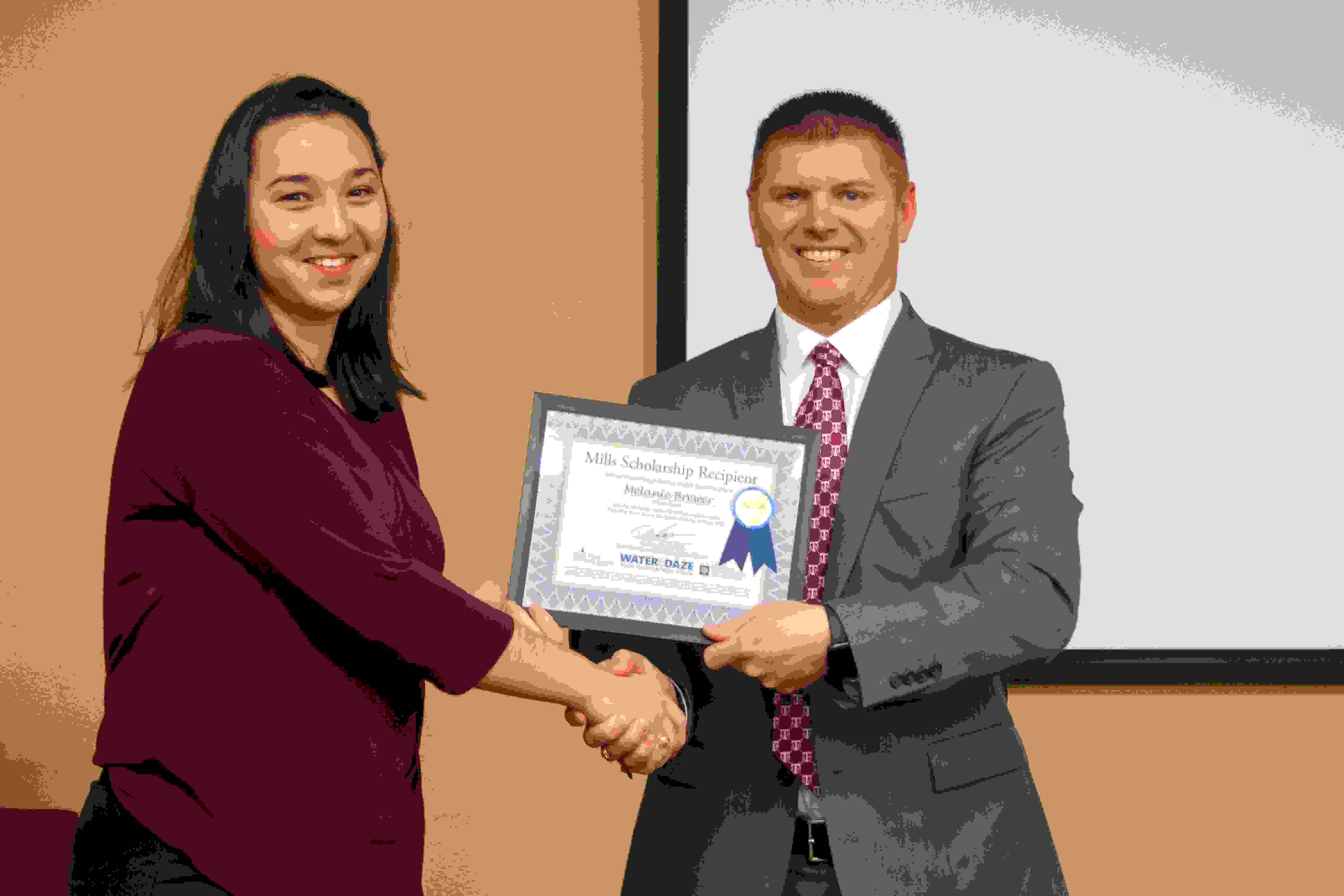
Melanie Brewer
Master's student, Department of Geology and Geophysics, College of Arts and Sciences, Texas A&M
Brewer won first place and a $7,500 scholarship for her research poster, “Reconstructing River Hydrology Using Stable Oxygen, Carbon and Clumped Isotopes in Freshwater Mussels from the Brazos River, TX,” at Water Daze 2023.
Q : What is your current research about?
A : My current research focuses on stable isotopes and trace element chemistry in freshwater mussels from the Brazos River. The project spans over the past 150 years and investigates chemical proxies to reconstruct paleo hydrology, climate and shell growth rates to see how they are affected by both climate change and the damming of the river.
Q : Who is a mentor who has helped or inspired you?
A : My advisor, Ethan Grossman, Ph.D., professor in the Department of Geology and Geophysics. I did undergraduate research with him, and he introduced me to the world of isotopes and really just showed me how to do research and what you can do with these isotopes. He was the first professor to encourage me to pursue a graduate degree and has continued to be a mentor and supporter throughout my graduate school journey.
Q : What is your advice for younger students finding their path?
A : I would encourage them to get involved in research and talk to your professors early on. After you first meet someone, jot down their information and just continue creating contacts, whether that is just talking to professors, other grad students or other people at conferences that you think their work is interesting. I was shy in the beginning; but later, I realized there was absolutely nothing to be scared of.
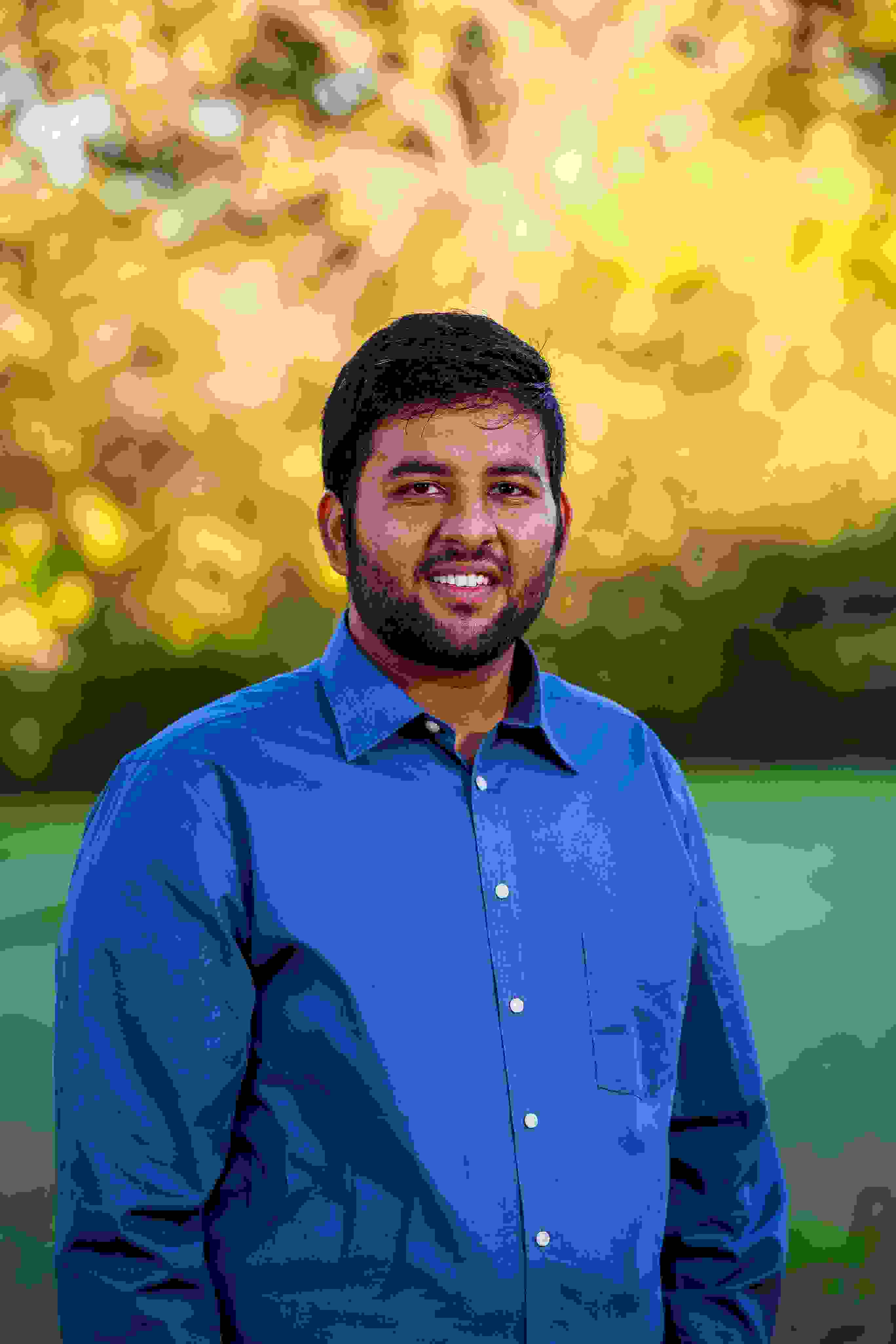
Shubham Jain
Ph.D. student, Water Management and Hydrological Science program, College of Arts and Sciences, Texas A&M, and former TWRI graduate research assistant
Q : What is your current research about?
A : My current research is focused on evaluating the individual and synergistic effects of various climatological and geological characteristics on the hydrologic signatures of U.S. watersheds.
Q : What accomplishments are you most proud of from your academic career so far?
A : I am most proud to be a part of the Large-scale Data Visualization in R workshops that my colleagues in the department and I have been conducting for the past several years.
Q : What are your career goals?
A : My goal is to continue working in the field of water resources research, and later focus more on managing water resources in developing regions of the world that have much poorer water quality and insufficient resources to manage them. With the research tools we have at our disposal, we can find ways to manage water resources and improve water quality that are both cost-effective and strategically oriented to be implemented anywhere in the world.
Q : Who is a mentor who has helped or inspired you?
A : I am very inspired by my advisor Raghavan Srinivasan, Ph.D., who has contributed greatly to the field of hydrological modeling and spatial science.
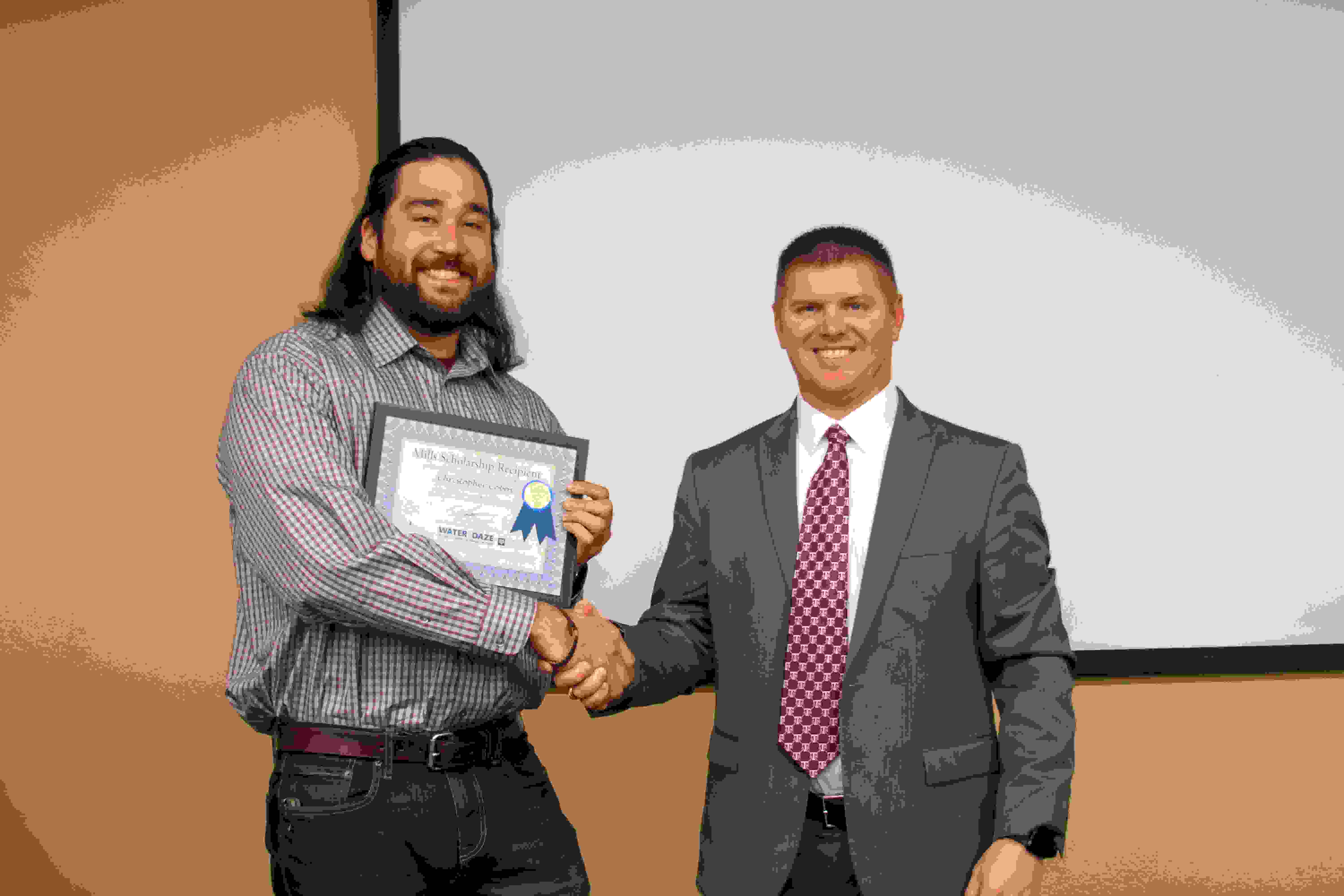
Christopher Cobos
Ph.D. student, Department of Soil and Crop Science, College of Agriculture and Life Sciences, Texas A&M, and senior research associate at the Texas A&M AgriLife Research Center in Lubbock
Cobos won second place and a $5,000 scholarship for his research poster, “Soil Water Dynamics in Semi-Arid Cotton Conservation Systems” at Water Daze 2023.
Q : What is your current research about?
A : My research focuses on soil-water dynamics in agricultural production systems, looking at how we can more efficiently capture and store precipitation and conserve the current water resources that we do have. I’m really focusing on optimizing conservation practices for semi-arid dryland production systems.
Q : Who is a mentor who has helped or inspired you?
A : My advisor, Katie Lewis, Ph.D., associate professor in the Department of Soil and Crop Sciences at the Texas A&M AgriLife Research Center in Lubbock. Prior to working at Texas A&M AgriLife, I didn't have any agricultural experience or background. I started working with her as a part-time technician, then full-time technician, research associate and then a student. She's given me essentially free rein to research whatever I'm interested in and has given me many opportunities to meet people, and since I'm new to agriculture, has kind of guided me into this world of research. She’s definitely someone to look up to.
Q : What is your advice for younger students finding their path?
A : I would suggest using every opportunity you can to just put yourself in a room full of smart people and sit and listen. Whether that's conferences or meetings or lectures, just listen to what others have to say.
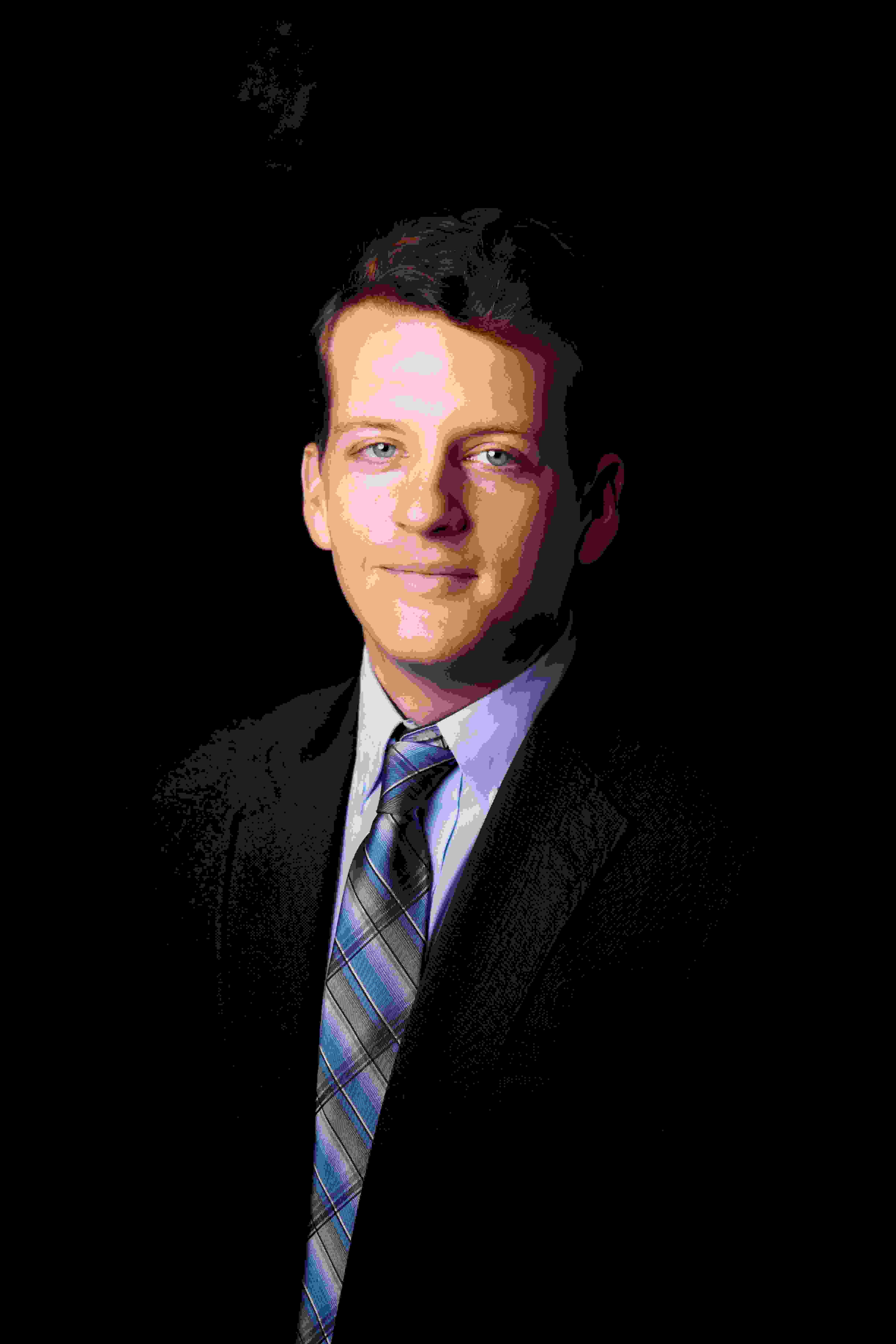
Trevor Johnson
Ph.D. student, Department of Agricultural and Applied Economics, Gordon W. Davis College of Agricultural Sciences and Natural Resources, Texas Tech University
Q : What is your current research about?
A : My research focuses primarily on the economics of carbon sequestration in agricultural production. During many agricultural production processes, carbon is released into the atmosphere. We’re focusing on how to incentivize producers to adopt regenerative agricultural practices that would sequester carbon back into the ground. We also plan to look at how these different sequestering practices and various carbon contracts may be related to water conservation.
Q : What accomplishments are you most proud of from your academic career so far?
A : Probably successfully defending my master’s thesis. It may be a document that will never be read again, but it’s the first piece of research that I completed and was able to present. Undoubtedly the process was difficult, but I am very grateful I went through it.
Q : Who is a mentor who has helped or inspired you?
A : My advisor, Donna McCallister, Ph.D., has been a great mentor since I began my undergraduate education at Texas Tech. She has been a great source of information, support and encouragement throughout all of my undergraduate and graduate education/research.
Q : What is your advice for younger students?
A : Get involved. If your department or specific
major has an association/group, getting involved is a great way to get to know other students, faculty and professors. These connections will benefit you just as much as the degree(s) you acquire. It’s also pretty fun and a great distraction when needed.
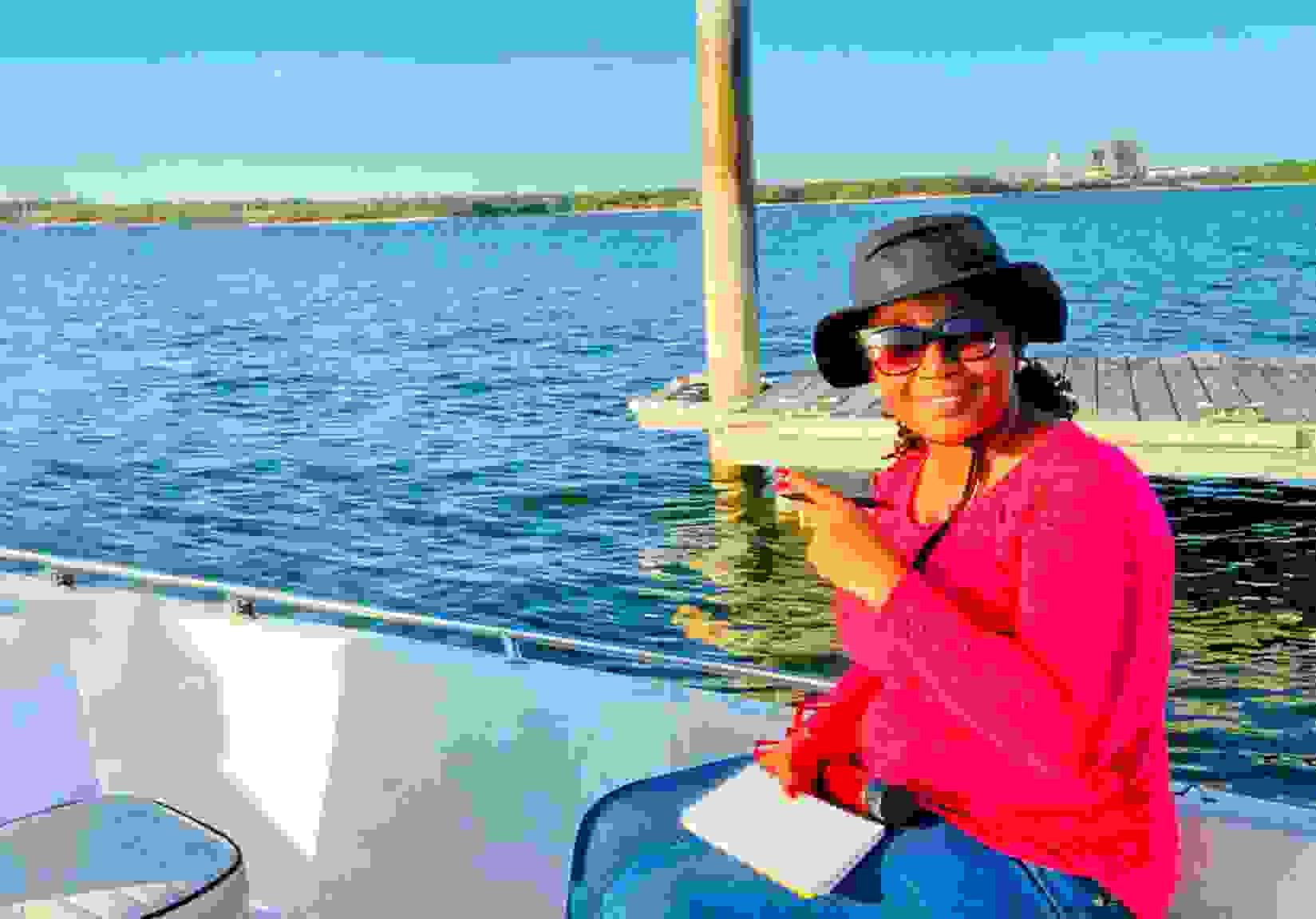
Charity Kgotlaebonywe
Ph.D. student, Department of Earth and Environmental Science, College of Science, University of Texas at Arlington, and 2022-23 TWRI-USGS graduate student research grant recipient
Q : What is your current research about?
A : My research focuses on understanding water use/availability and implications on urban systems under inter-annual climate variability, climate change and drought on water resources using naturally occurring isotope tracers for the Dallas-Fort Worth metroplex.
Q : What accomplishments are you most proud of from your academic career so far?
A : I recently got a Schlumberger Foundation Faculty for the Future Award for the 2023-2024 year. So, I'm really proud, and I'm really fascinated to have this type of support.
Q : Who is a mentor who has helped or inspired you?
A : I'm currently working with Ricardo Sanchez Marino, Ph.D. He's really been an inspiration to me, and he studies most water issues from his home country of Costa Rica. So, I'm really fascinated to do the same for my country of Botswana, Africa, as well.
Q : What is your advice for younger students?
A : I am a young woman, but women are scarce in my field. So, I just wanted to show women that it is possible to do it in a male-dominated field. The sky's the limit. Young women out there, I want to show them — let's do this, we got this, and we can do it.
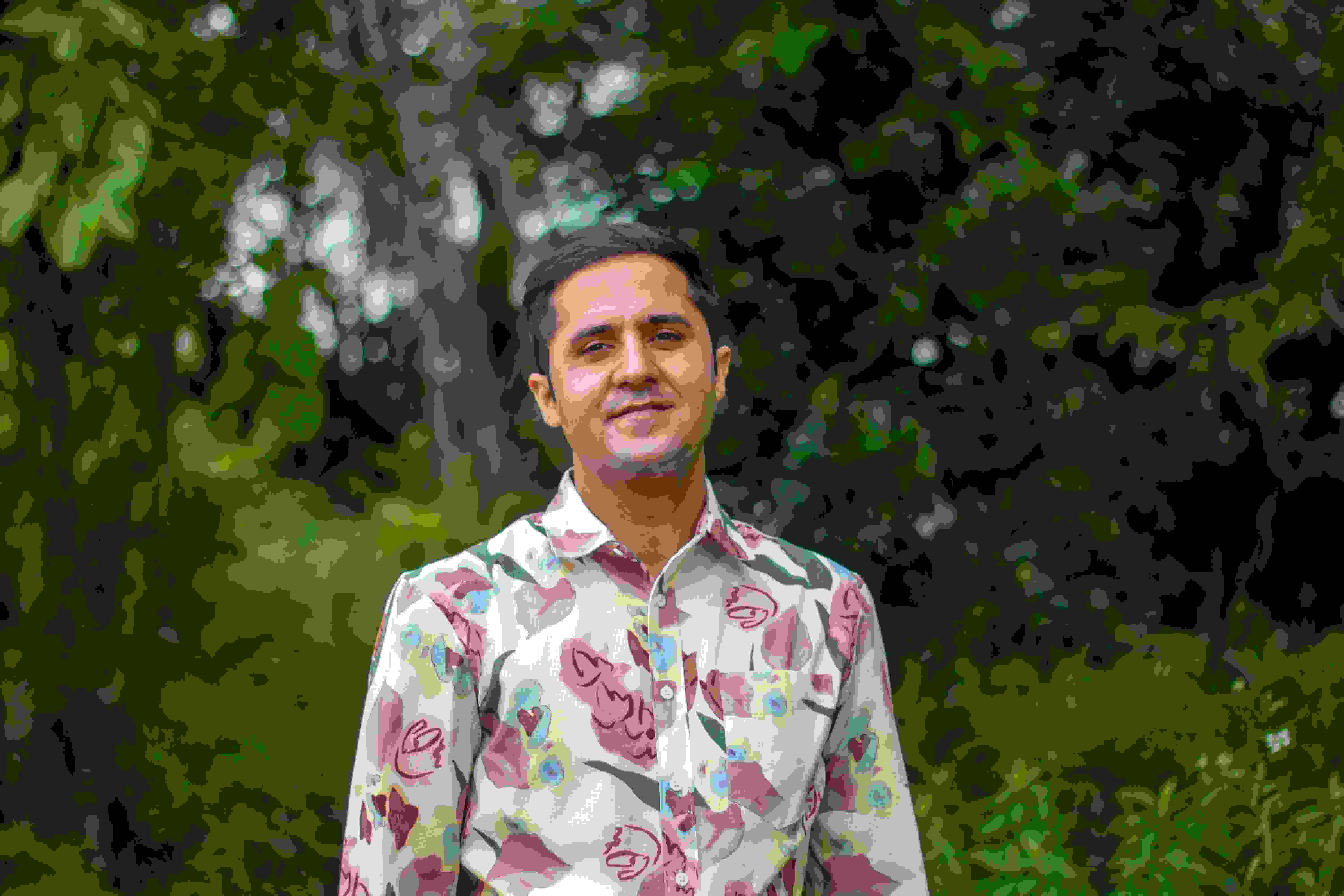
Najibullah Loodin
Ph.D. student, Water Management and Hydrological Science, College of Arts and Sciences, Texas A&M, and former TWRI graduate research assistant
Q : What is your current research about?
A : I'm working on transboundary water governance and management. My research specifically centers on the Helmand River and Rio Grande basins. The aim is to see how emotional attachment and mistrust challenge the water cooperation between upstream and downstream states of a shared watercourse.
Q : What accomplishments are you most proud of from your academic career so far?
A : I am proud of being engaged in academic affairs. I love writing research articles and then sharing and communicating the outcome of my research with scholars in the field. Those accomplishments make me proud of my work.
Q : What are your career goals?
A : I would like to do postdoctoral studies after completing my Ph.D., if possible, especially at Texas A&M. And my long-term goal is to stay in academia.
Q : Who is a mentor who has helped or inspired you?
A : Professors Gabriel Eckstein, J.D.; Susanne Schmeier, Ph.D.; Wendy Jepson, Ph.D.; and Aaron Wolf, Ph.D. I'm interested to learn more from them, and I'm inspired by their work and the way they do research in the field of water governance and management.

Sabiha Tabassum
Recent Ph.D. graduate, Jackson School of Geosciences, University of Texas at Austin
Q : What is your current research about?
A : I work on the impact of climate change on hydrological extremes. I look at how climate change might impact extreme rainfall events and the resulting flooding events in Texas using projections of climate models.
Q : What accomplishments are you most proud of from your academic career so far?
A : Being able to work on the Water Forward 2024 project (with the City of Austin) is a big thing for me because in this project I got a chance to work directly with stakeholders and policymakers and be part of a very important task. This experience is going to help me a lot in the future.
Q : What are your career goals?
A : I am looking for positions where I can use my knowledge, both as a water resource engineer and a climate scientist who’s into mitigating climate risk and contribute towards developing a climate-resilient society.
Q : What is your advice for younger students with these interests?
A : With climate change, water-related problems are becoming more severe and our role as water resources professionals and researchers is becoming more important. We need the expertise of these young minds to come up with innovative ideas to tackle these problems. Let's do this.
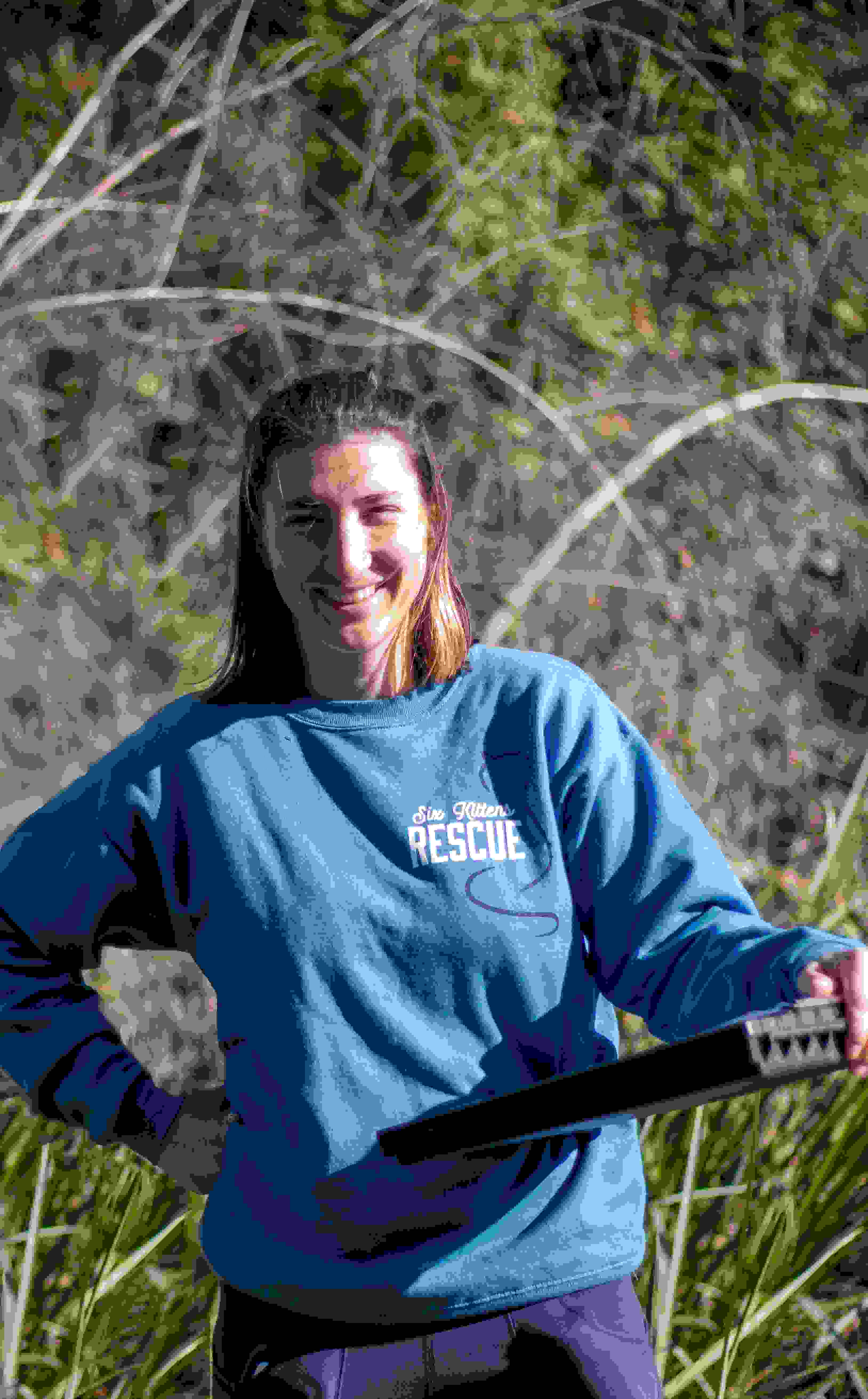
Amanda Tague
Received master's degree August 2023, Water Management and Hydrological Science, College of Arts and Sciences, Texas A&M, and former TWRI graduate research assistant, now a TWRI research associate
Q : What was your graduate research about?
A : I was a non-thesis student, so I did not have any graduate research, but I was able to gain valuable research experience through the projects I helped with at TWRI.
Q : What accomplishments are you most proud of from your academic career so far?
A : I gave a presentation last year for cybersecurity in the water sector, and it was a lot of really interesting things that I previously didn’t know about. I was able to learn a lot in a very short amount of time.
Q : Who is a mentor who has helped or inspired you?
A : The water management and hydrological sciences program has some really awesome professors. Hongbin Zhang, Ph.D., a professor in the Department of Soil and Crop Sciences, is a fantastic professor and very, very passionate about the water system and about educating people.
Q : What is your advice for younger students?
A : Don’t be afraid to ask a billion questions; you and your peers will be better off for it. Also don’t forget to get connected with other students and professors within your programs.
Explore this Issue
Authors
Mackenzie Schneider was a communications intern at Texas Water Research Institute, assisting with social media, helping develop and publish newsletters, and writing and editing news releases and other educational material published by the institute.

